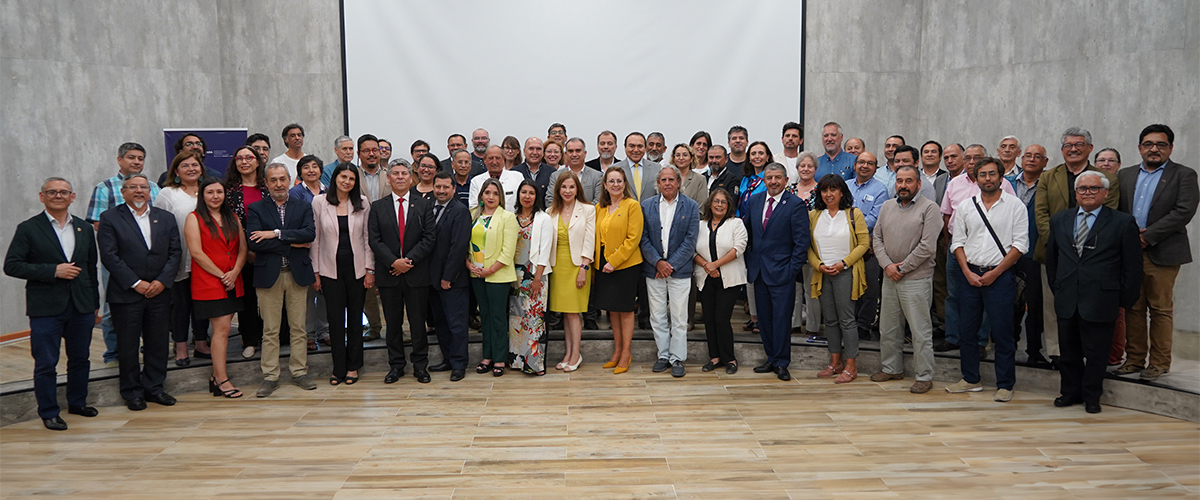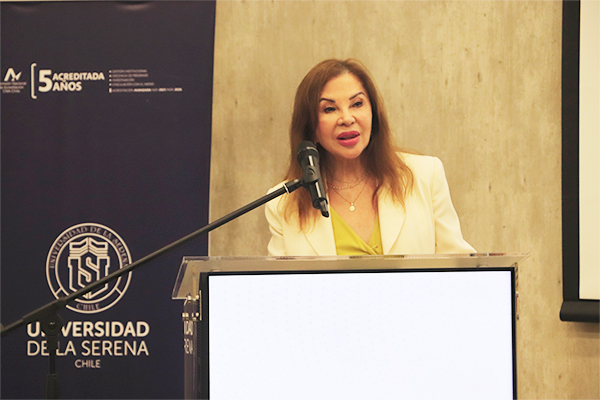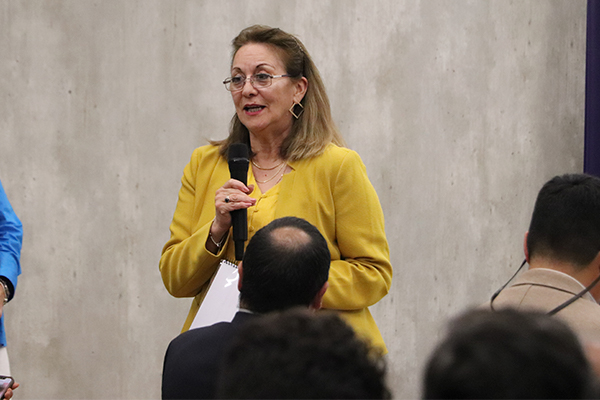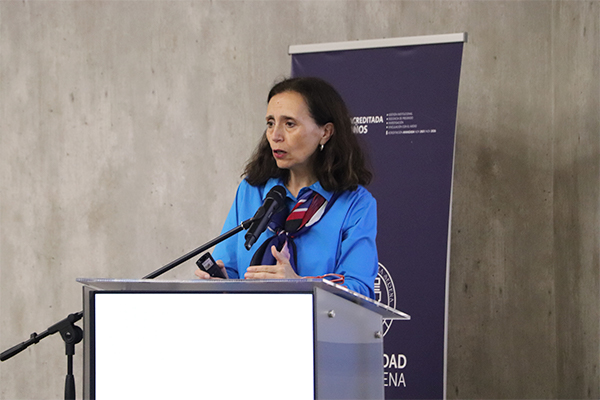- News
They present an update of the ULS Educational Model

In the Expanded Rectory Committee, the first of 2024, academic authorities and directors were convened, an instance where the main changes to this strategic document that allow optimizing training processes were presented.
Convened by the Rector Dr. Luperfina Rojas Escobar, university authorities, deans and academic directors learned about the update of the Educational Model of the University of La Serena, in the first Expanded Rectorate Committee 2024.
On the occasion, the highest institutional authority referred to the importance of this update, within the framework of continuous improvement according to changes in the environment and the demands of the Higher Education System. Likewise, he highlighted the work carried out to identify weaknesses in the previous accreditation process, which made it possible to visualize the academic progression of the students and the low timely qualifications, which is why the Intensive Academic Season (TAI) was implemented this year. month of January and will be replicated in August if the academic calendar is met.
Rector Rojas also highlighted the importance of the leveling plan for first-year students, the implementation of a comprehensive quality management system, the accreditation and certification of undergraduate and graduate programs and the presentation to the Ministry of Education of a ULS growth plan that includes the creation of new careers and postgraduate programs in the various areas of knowledge developed in our institution; He also highlighted the Quality of Life Program that will focus on the mental health care of students, academics and University officials.
The Rector highlighted that one of the great challenges will be the completion of the Institutional Development Plan, based mainly on the ten-year strengthening plan, prepared by commissions where all the faculties are represented. Along with this, she added that another relevant milestone this year will be the implementation of the adaptation of the ULS Statute.
“The University continues to seek to provide new opportunities to young people through continuous training, incorporating virtual education, artificial intelligence and the different levels that our Educational Model considers to be able to articulate the undergraduate and graduate, which represents a joint work of facing institutional accreditation for the year 2026,” he stated.
ULS Educational Model
The Academic Vice-Rector, Dr. Alejandra Torrejón, explained that “the update arises from a need to optimize processes, incorporating matters related to regulations and public policies, a no minor element that refers to the standards and accreditation criteria that today are a mandatory, and that arise as a result of an evaluation that was carried out, not only internally, but also by CUECH.”
In this context, he explained that “joint, participatory work has been carried out, with the possibility of having external agents who collaborated with us and who have allowed us to generate this proposal. Our task in 2024 will be that all levels of the educational community have access to this update, which includes many elements that are necessary to improve our training processes, both undergraduate and postgraduate."
For her part, the head of the Teaching Improvement Unit (UMD), Dr. Pamela Labra, presented the main changes that this model brings and explained that “in the case of teaching, for example, learning achievements are evident in the indicators of academic progression, of timely qualifications. Therefore, one of the central elements has to do with how we optimize processes with respect to all the new criteria and standards.”
To generate the graduation profile for the students of the new cohorts, the head of the UMD emphasized, “a unique entry profile is required, to work from there on the leveling processes, whether institutional or career or program.”
Labra added that “another of the central focuses of the model is to integrate both the teacher and the curricular manager, school or career director or coordinator with the students, forming the concept of training triad, where one of the main axes of the update is fulfilled. of the model and elements of comprehensive training and the focus on the relevance of working on elements of sustainability within the training area.”
Finally, he indicated that another of the central themes in the update “has to do with training by cycles, that is, the need to think about continuous training and also the training approach that goes from a face-to-face look to a mixed one, always "That the pandemic leaves us with certain learnings that we must incorporate, we continue to subscribe to the system of transferable academic credits but now we also seek to better promote national and international mobility processes and the need to work in a multi-interdisciplinary manner," added Dr. Till.



